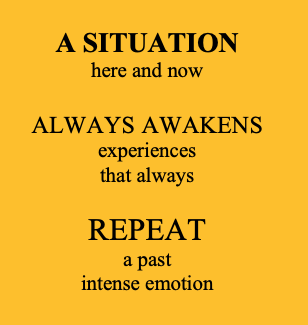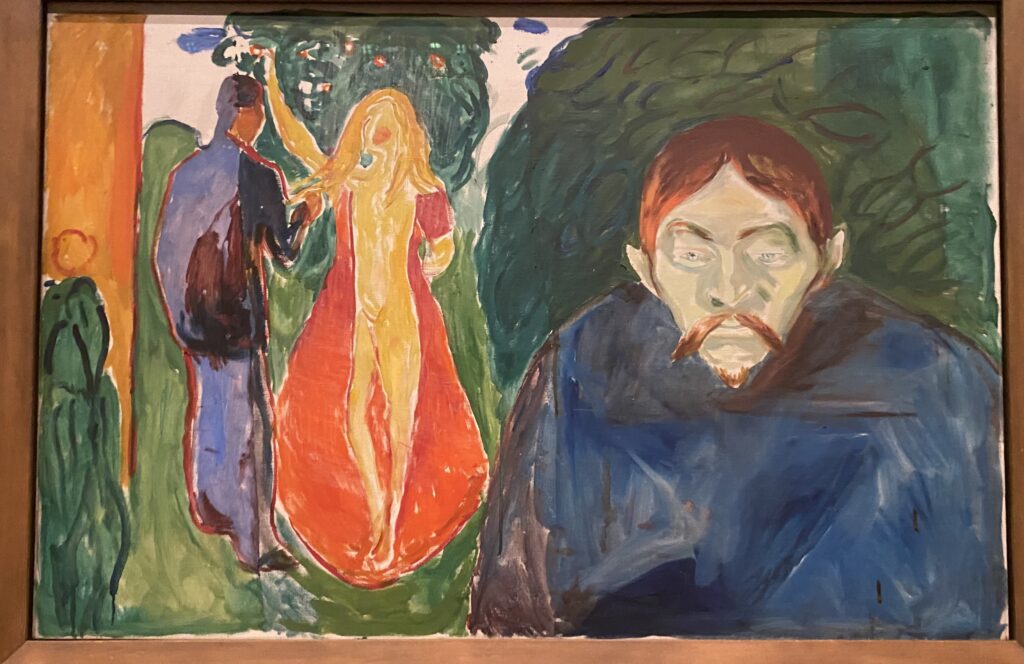

Not all trauma stems from war, accidents, or disasters. Some begin quietly—in silence—as a child begins to sense they were not wanted.
Growing up without feeling loved or wanted can leave deep, lasting marks. For some, this develops into post-traumatic stress disorder (PTSD
A situation at work can trigger unexpected reactions for their lives today.
Employees carrying hidden wounds from a childhood and life lacking basic safety and attachment may have developed PTSD—a reaction to a life where basic safety and emotional connection were missing
Experiences from a childhood where one felt worthless can be repeated and recognized in a work situation.
Over time, this can erode self-esteem, trust in others, and the ability to rely teamwork and the confidence and friendship of partners, friends and working colleques.

“I live in involuntary celibacy. Just trying to touch her, or give her a hug, she freezes. It started after her 50th birthday, when she told me about something that happened with her boss—before we got married. We both believed love would conquer it. But everything changed. Help!”
Being the partner of someone with PTSD can be both deeply challenging and deeply meaningful. Many describe it as being in a relationship where love and unease live side by side. Here are some common experiences and feelings that partners may go through
It can be painful to see the person you love struggle with flashbacks, depression, or inner turmoil — and at the same time feel powerless. You want to help, but PTSD isn’t something that disappears through love or logic.
It’s like hearing: “I love you, but I can’t erase what happened.”
Sometimes, closeness can trigger discomfort. Physical or emotional boundaries may suddenly shift. A kiss might be rejected. A normal disagreement might lead to your partner withdrawing completely.
This can be confusing and hurtful — even if it’s not really about you.
Someone with PTSD may go through periods of emotional shutdown, becoming distant, or needing a lot of time alone.
You might feel rejected, unnecessary, or like you’re standing outside the relationship — even while being right in the middle of it.
Some partners become overly accommodating. You might become very careful with what you say, suggest, how you touch, or how you express frustration — afraid of triggering something
Many partners also describe a deeper love — because they know what their partner has been through and see the strength it takes to live with such vulnerability.
It creates a kind of bond that may not be visible to the outside world.
Knowledge: Learning about PTSD both in private and working relations, helps you understand reactions that might otherwise seem “irrational.”

The theme is as old as the story of Adam and Eve. – The Norwegian painter Edvard Munch has interpreted the mood in his own way in the painting: Jealousy
Loving someone with PTSD takes patience, understanding, and genuine compassion — and still, the relationship may at times feel like a desert: scorching storms and unimaginable dryness.
Some couples manage to turn that desert into a space for healing and growth.
Others become another line in the divorce statistics.
But know this: The causes are beyond your control. – You are both survivors.

This means that memories and emotions tied to past experiences can be processed, developed, and used constructively in similar situations in the future.
This applies to both new, exciting and positive experiences, as well as experiences involving loss, grief, and emotional pain.
No one escapes the School of Life — not even you.
So take a moment to notice the association, memory, or specific situation that just surfaced for you. – How did you handle it? How did you respond? – Do you recognize any of what you’ve just read?
Write down a keyword or two — and consider that what you’ve written is there for your benefit. – Good luck.